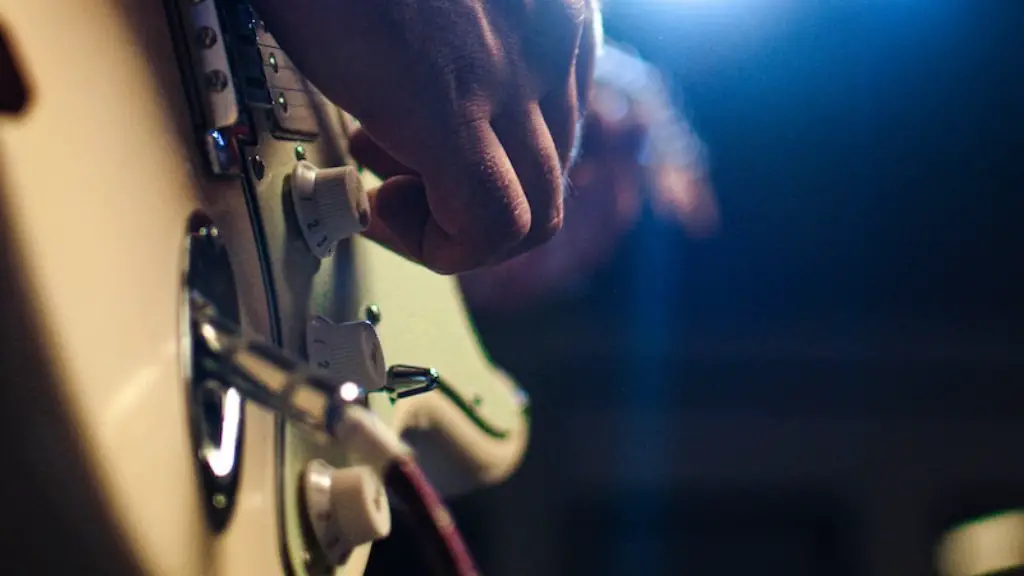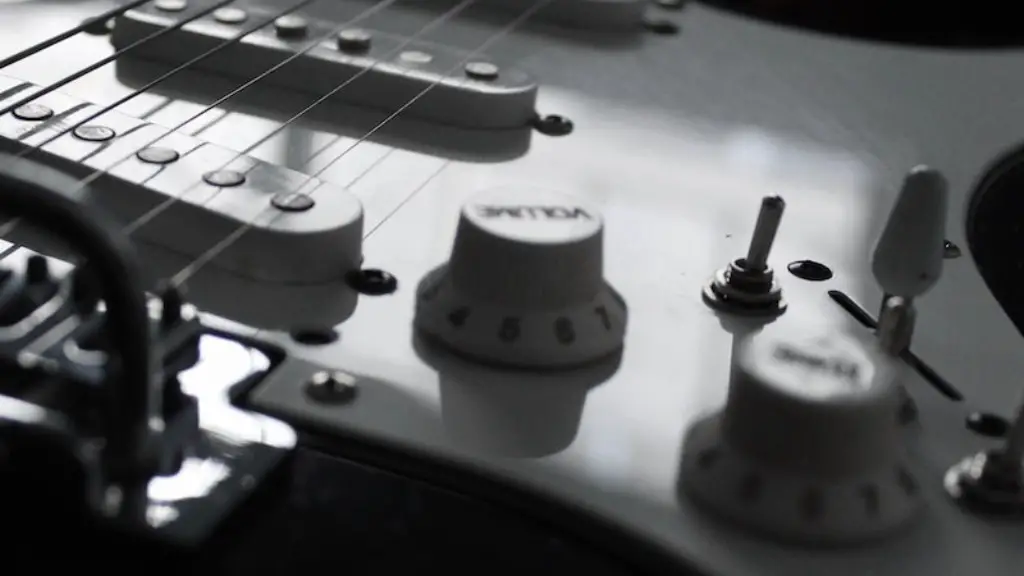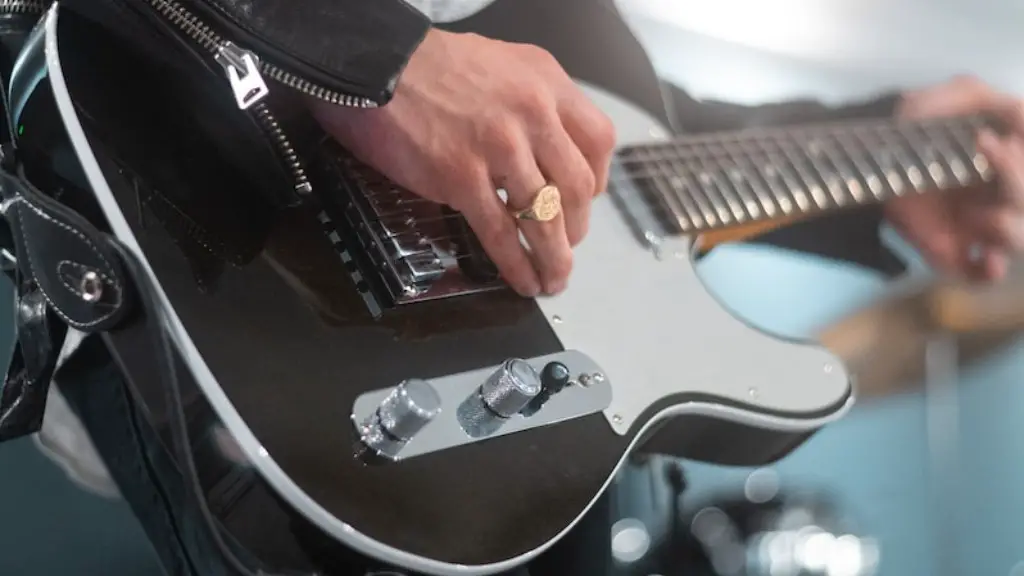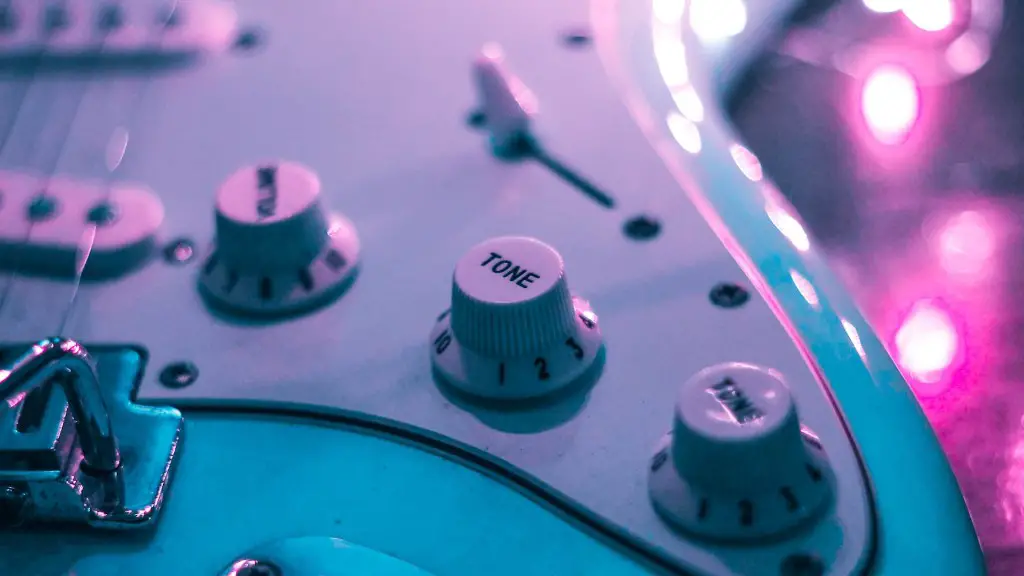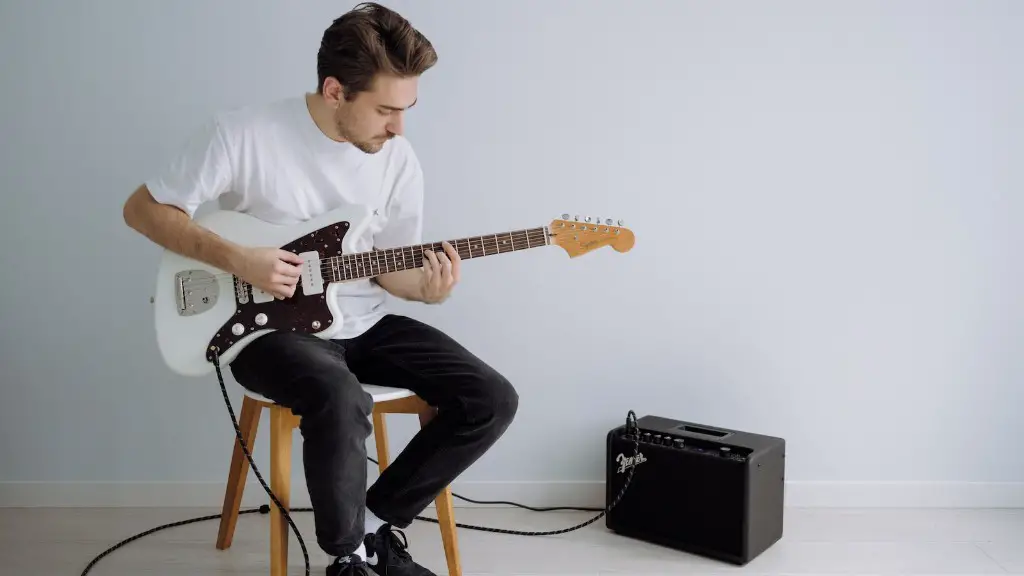Electric guitars are iconic instruments that have been used in countless songs and performances over the years. But why does it sometimes sound like an acoustic guitar even when its plugged in?
The answer lies in the setup of your guitar and its components. From the pickups to the amp, every piece of equipment plays an important role in producing a great electric sound. If any of these components are not set up correctly or are not of good quality, then you will not get the desired sound.
For example, if your pickups are too weak or too close to the strings, then they won’t be able to pick up enough of the string’s vibration to make an electric sound. Similarly, if you’re using a low-quality amp or speaker cabinet then your guitar may sound muffled and distorted.
The best way to get that classic electric guitar tone is to make sure all your components are of good quality and set them up correctly. If you do that, then you’ll be able to enjoy a great electric sound for years to come.
Troubleshooting Electric Guitar Sound
If your electric guitar isn’t producing the sound you desire, there are a few potential issues that could be causing the problem. Begin by checking the amplifier and cables to make sure they are in good working condition and properly connected. Ensure that all knobs and switches on the guitar and amp are set correctly. If you’re using an effect pedal, make sure it is functioning properly. You may also want to check the strings and pickups to see if they need replacing.
The type of guitar pickups you use can also affect your electric guitar sound. Single-coil pickups produce a bright, snappy sound while humbucker pickups provide a warmer, more rounded tone. Different woods used in construction can also impact your guitar’s sound quality so experiment with different types of wood for different sounds.
Finally, consider whether or not your playing technique may be contributing to the issue. Experiment with different picking patterns, strumming techniques, and playing dynamics to help bring out different tones from your electric guitar.
Electrical Connections and Wiring
Having trouble getting your electric guitar to sound like it should? The answer could be in the electrical connections and wiring. Every electric guitar has a set of pickups, a volume knob, a tone knob, and an output jack. All of these components must be properly wired together in order for the signal to pass through correctly. If any of these components is wired incorrectly, then you may not be able to get the desired sound from your guitar.
For example, if the pickups are not wired correctly to the volume and tone knobs, then you won’t be able to adjust the sound of your guitar. When wiring together components, it’s important to make sure that all connections are secure and that there is no loose wire or short circuit. It’s also important to use insulated wire whenever possible so as not to cause any damage from stray electrical currents.
Finally, it’s essential that you test all of your wiring before playing your guitar for best results. If you have any doubts about how to properly wire an electric guitar, it’s always best to consult an experienced technician. With correct wiring and proper maintenance, you can enjoy decades of great sound from your electric guitar!
Electric Guitar Sound
The electric guitar is the cornerstone of modern music, but it can be hard to get it to sound right. To get your electric guitar sounding electric, you need the right combination of pickups, amplifiers, and effects pedals. Pickups are the devices that convert the vibrations of the strings into electronic signals that are amplified by an amplifier. An amplifier boosts the signal so it can be heard over a PA system or other sound system. Effects pedals add additional flavor to your tone by manipulating the sound in various ways. Distortion, echo, and reverb are some of the most popular effects pedals used by guitarists. Using all three components together can create a unique and powerful sound. Every guitarist has their own preferred combination of pickups, amps, and effects pedals; so experimenting with different combinations is key to finding your own signature sound.
Common Mistakes Made by Beginners
One of the common mistakes made by electric guitar beginners is not properly setting up their guitars. An electric guitar needs to be adjusted to the right string height and action in order for it to sound like an electric guitar and not a toy. This setup will also help prevent buzzing and fretting out. Another mistake is not having the right amp settings. Many beginners don’t know how to properly set up their amp or don’t have the right equipment for their style of playing. Without proper settings, an electric guitar will sound dull and muddy.
Finally, beginners often overlook the importance of guitar maintenance. Even if you have your guitar setup correctly, if you don’t clean your strings regularly, it can affect your sound quality. You should also check your intonation from time to time; if it’s off, it can cause tuning problems and make your guitar sound out of tune.
It’s important for electric guitar beginners to take their time and learn about proper setup, equipment, and maintenance in order to get the most out of their instrument. With a little knowledge and practice, you can make sure that your electric guitar sounds great.
Checking the Electronics of an Electric Guitar
If you’re having trouble getting your electric guitar to sound electric, there could be a few issues. First, check the volume and tone knobs on your guitar to make sure they are turned up, and that the pickups are all in good working order. You may also want to check the cable connecting your guitar to the amp and make sure it is securely plugged in.
Next, it’s important to make sure your amp is on and at a usable volume. If it’s too low, no matter how high you turn up your guitar knobs, you won’t hear any sound. Also be sure that all of its settings are set correctly for the desired tone.
Finally, ensure that all of the connections between your instruments and amp are working properly. It’s a good idea to use a multimeter or continuity tester to check that everything is wired correctly. This simple step can often solve any issues with an electric guitar’s sound.
Adjusting the Intonation and Action on an Electric Guitar
When an electric guitar is not sounding electric, it’s likely that the intonation and action need to be adjusted. Intonation is how well your guitar is in tune with itself, while action refers to the string height above the fretboard. Improperly adjusted intonation and action can lead to buzzing strings, difficulty playing certain notes, and poor sound quality.
To adjust the intonation, you’ll need a tuning device such as an electronic tuner or pitch pipe. Tune the strings up to concert pitch (A=440Hz), then use a screwdriver or Allen wrench to adjust the screws on the bridge saddles until each string plays perfectly in tune with itself.
Action is adjusted by adjusting the springs behind the bridge. You can raise or lower action depending on your preference, but be sure not to raise it too high as this can cause serious damage to your instrument. You may also need to adjust your truss rod if you find that there are large discrepancies between strings.
Finally, make sure all of your hardware is securely tightened, as loose screws can negatively affect both intonation and action. With proper setup, your electric guitar will sing like never before!
Wrap Up
To sum it all up, not having a properly setup electric guitar with the right equipment may be causing the lack of sound. This includes having a properly adjusted truss rod, and having quality strings that are in good condition, as well as ensuring the pickups are properly wired and working. All of these factors can play a role in why your electric guitar is not producing an electric sound. It is important to regularly maintain and adjust your instrument to ensure you get the most out of your electric guitar.
